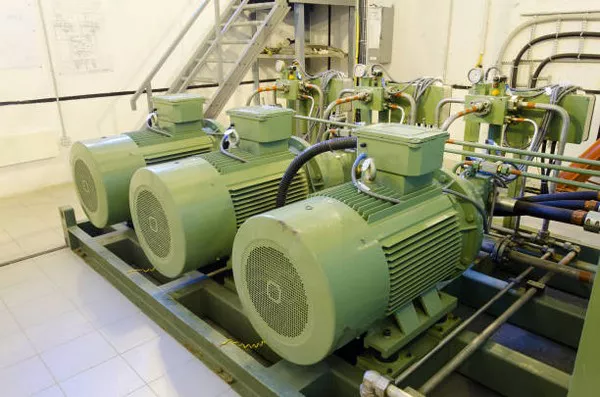Generators play a crucial role in providing power during unexpected outages, emergencies, or in remote locations where access to the grid is limited. However, these valuable machines are not invulnerable to the elements, and one of their greatest foes is rain. Water can damage generators, leading to costly repairs or even rendering them useless when you need them the most. In this article, we will discuss essential tips and strategies to keep your generator dry and operational during rainy weather.
Proper Generator Placement
The first and foremost step in safeguarding your generator from rain is proper placement. Choose a location that offers natural protection from the elements. A generator should ideally be installed in a well-ventilated, elevated, and covered area. Here are some considerations for ideal placement:
a. Elevation: Place your generator on an elevated platform or concrete slab to prevent water accumulation around the unit.
b. Shelter: Install a dedicated generator enclosure or build a simple, waterproof shelter to shield the generator from rain and moisture. Ensure that this shelter has adequate ventilation to prevent heat buildup.
c. Location: Keep your generator away from low-lying areas that are prone to flooding. Additionally, it’s essential to maintain the manufacturer’s recommended clearance on all sides to allow for proper air circulation and cooling.
Generator Canopy
If your generator isn’t already equipped with an enclosure, consider investing in a generator canopy. A canopy provides a cost-effective solution to protect your generator from rain and other environmental factors. These canopies are designed to fit a variety of generator sizes and can be easily installed.
When choosing a canopy, look for features like:
a. Waterproof material: Ensure that the canopy is made from waterproof and durable materials like polyethylene or polyester with a waterproof coating.
b. Ventilation: Opt for a canopy with proper ventilation to prevent heat buildup during generator operation.
c. Secure fastening: Make sure the canopy can be securely fastened to the generator frame to withstand wind and rain.
Generator Cover
For portable generators that are stored outdoors, investing in a generator cover is an excellent option. These covers are designed to protect the generator from rain and moisture when it’s not in use. Here’s what to consider when selecting a generator cover:
a. Size: Choose a cover that fits your generator snugly to provide complete protection.
b. Material: Look for covers made from high-quality, waterproof materials that can withstand UV rays and extreme weather conditions.
c. Fastening mechanism: Ensure the cover has a secure fastening mechanism to prevent it from blowing away in strong winds.
Electrical Panel and Outlets Protection
In addition to protecting the generator itself, it’s crucial to safeguard the electrical panel and outlets from rain. Water can damage these critical components and pose a safety hazard. Consider the following steps:
a. Weatherproof outlets: Install weatherproof outlet covers or enclosures to shield electrical outlets and connectors from rain.
b. Seal entry points: Seal any entry points or gaps where electrical wires enter the generator housing or shelter to prevent water from infiltrating.
c. Elevate electrical components: If possible, mount the electrical panel and outlets higher on the generator to minimize the risk of water contact.
Regular Maintenance
Proper maintenance is key to ensuring the longevity and performance of your generator, especially in wet conditions. Here are some maintenance tasks to keep your generator in top shape:
a. Inspect for leaks: Regularly check for signs of water leaks in the generator enclosure or canopy. Repair any holes or damage promptly.
b. Clean the generator: Remove dirt, debris, and leaves from the generator and its surrounding area to prevent blockages and water buildup.
c. Check seals and gaskets: Inspect and replace damaged seals, gaskets, and weather stripping to maintain a watertight seal around the generator’s components.
d. Fuel and oil checks: Keep the generator’s fuel and oil levels at the recommended levels, as low levels can affect performance during wet weather.
Emergency Rain Protection
Even with the best preparations, unexpected heavy rains can occur. In such cases, it’s essential to have an emergency plan in place to protect your generator. Consider the following measures:
a. Portable canopy or tarp: Have a portable canopy or heavy-duty tarp on hand that can be quickly deployed to cover the generator during sudden rainstorms.
b. Monitoring system: Invest in a generator monitoring system that can alert you to adverse weather conditions, allowing you to take protective measures in advance.
c. Remote start and stop: Some generators have remote start and stop capabilities, allowing you to turn the generator off remotely if heavy rain is imminent.
Professional Inspection
Regular professional inspections can identify potential issues with your generator and its protection mechanisms. Consider scheduling an annual inspection by a qualified technician who can assess the generator’s condition and recommend any necessary repairs or upgrades.
Conclusion
A generator is a valuable investment that can provide power during critical situations, but it must be adequately protected from rain and moisture to ensure its reliability and longevity. By following the tips and strategies outlined in this article, you can keep your generator dry and operational, ready to provide the power you need when you need it most. Remember that preventive measures, regular maintenance, and a well-thought-out emergency plan are key to generator safety and performance in rainy weather.

